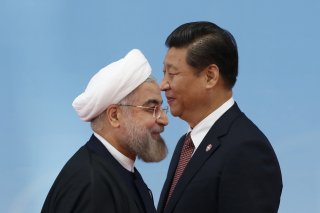How the Coronavirus Crisis Exposed the False Promise of Iran-China Partnership
An alliance that will never occur?
Further evidence that China has a rather disappointing score in protecting its ties with Tehran has emerged from the recent collapse in oil imports from Iran. Figures released by Chinese customs administration have shown that crude deliveries reached a 20-year low in value in March 2020. While the situation reflects a general contraction of domestic demand due to the coronavirus pandemic, it is worth noting that China’s oil imports from Russia and Saudi Arabia decreased only by 15 percent, a far less alarming figure compared to the 60 percent fall in deliveries from Iran.
A “Positive” Test of Iran-China Partnership?
The next litmus test for Iranian-Chinese partnership is expected to come in October or maybe September. The U.S. has already announced its intention to extend the UN arms embargo on Iran and menaced to trigger the snapback mechanism enshrined in the UNSC resolution 2231 if other Security Council members refuse to support its initiative and let the embargo expire in October. China’s mission at the U.N. has stressed that Washington, which unilaterally withdrew from the JCPOA before reimposing sanctions, has no right to extend the arms embargo or activate the snapback mechanism against Tehran. Arguably, China’s treatment of the issue—an extension of the US “maximum pressure” policy against Iran—in the coming months will mostly demonstrate how reliable and substantive its “Comprehensive Strategic Partnership” with Iran is. The partnership has so far failed its major tests.
Maysam Behravesh is a doctoral student of political science at Lund University, Sweden, Middle East security and a political analyst at the U.S.-based geopolitical risk consultancy, Gulf State Analytics (GSA). He was an intelligence analyst and policy advisor in Iran from 2008 to 2010, and mostly writes about Middle East security.
Jacopo Scita is H. H. Sheikh Nasser al-Mohammad al-Sabah doctoral fellow and Sir Peter de la Billière scholar at the School of Government and International Affairs, Durham University, Britain. His research focus is on China-Iran relations and, more broadly, China’s presence in the Persian Gulf.

